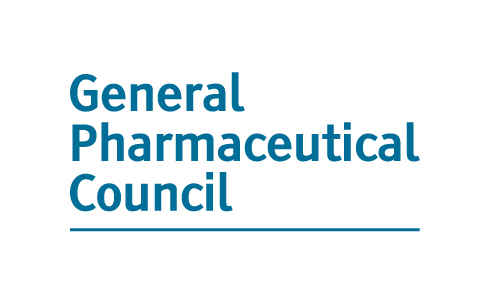How is ‘Pharmacy First’ pushing us to safeguard our local pharmacies?
)
Santosh Sahu, CEO and Founder of Charac, discusses the Government’s approaching ‘Pharmacy First’ proposal and what this means for under-resourced pharmacies.
With the UK facing a national health crisis of an unprecedented scale, the Government’s ‘Pharmacy First’ proposal has been touted as the solution to relieving pressure from struggling GPs, with pharmacies across the country to share the burden of growing patient waitlists. To facilitate this, the Government is increasing the powers of pharmacists, including the number of ailments they can prescribe for. However, many pharmacies themselves are under-resourced, leaving them unable to take on even a portion of the 7.7 million strong backlog, and will need to find an effective way to manage these impending and increasing responsibilities. The problem stands: how can pharmacies safeguard themselves to weather the coming storm, and position themselves so their business operations thrive going forwards?
While the Government has pledged £645m to community pharmacies to enable the delivery of ‘Pharmacy First’, this does not even cover annual inflation in real terms, with pharmacies facing an annual shortfall in funding of over £750m. Furthermore, pharmacy staff vacancies have doubled since 2017, with 81% ‘struggling to cope’ with an increase in demand for their services. It’s clear, then, as things stand, that pharmacies are in no way ready to be ‘first’.
How technology can help, and quickly
The current way that pharmacies operate is unsustainable going forwards. There is an over-reliance on manual processes, including paperwork and taking phone calls, that prevent pharmacists from having the time to complete other important tasks - in fact, 40% of calls from patients are made due to a lack of clarity on the status of prescriptions.
Integrating digital management systems is proving vital to increasing efficiency and streamlining operations in pharmacies. Digital patient records, online prescription trackers, and utilising artificial intelligence to respond to simple queries are all examples of how technology can be implemented to improve the capacity of pharmacists.
Digitalising systems such as booking and conducting remote consultations, and ordering and delivering prescriptions, will not only free up time for pharmacists and increase business, but make primary care more accessible for patients and improve patient outcomes. Patients will no longer have to rely on physically going to a pharmacy or calling a pharmacist to receive medications or advice.
Altogether, the time saved by pharmacies can be used to improve personalised care for patients. Pharmacists will have more time to provide truly tailored care to patients and put the ‘community’ in community pharmacy, giving high street pharmacies an edge over pharmacies that are solely online.
Furthermore, pharmacies will benefit from increased revenues. Utilising tech to manage medication supply to prevent overstocking or stockouts, provide standardised records to conduct revenue-boosting services such as the New Medicine Service (NMS), and participate in digital marketing campaigns can all make a difference to financial figures. Such digital management systems can reduce money spent on unnecessary medications or certain in-store operations, make it easier to conduct revenue-boosting services, and provide a higher quality of service to not only retain, but attract, new customers.
The ramifications of ‘Pharmacy First’
The Government’s ‘Pharmacy First’ policy will not just increase the responsibilities of pharmacies in treating certain ailments, but the scrutiny on pharmacies as a whole. If not to improve business and patient outcomes, pharmacists will need to find a way to protect themselves from mistakes.
The lack of clinical documentation in the pharmacy sector visibly contrasts other primary care services, with GPs and nurses having standardised methods of documentation. The well-known adage in the healthcare sector that, “if it’s not documented, it didn’t happen,” means that pharmacists who do not keep thorough patient records may be liable for anything that goes wrong.
Due to a lack of time and a reliance on manual paperwork, it is common for some pharmacists to have little to no records of actions taken with patients. Yet, with pharmacists soon to take on certain aspects of primary care that have previously been the remit of doctors and nurses, the same standard of record-keeping will be expected.
A lack of appropriate record-keeping means that patient records cannot be shared with other care providers. This can cause issues down the line with patients being given inappropriate care, potentially negatively impacting patient outcomes. Additionally, pharmacists that commit medical errors without documented evidence will be held liable for anything that happens to their patient, opening pharmacists up to lawsuits that could threaten their business.
Safeguarding pharmacies
In England alone, there are around 1.6 million visits to community pharmacies each day. The implementation of ‘Pharmacy First’ will see this number vastly increase, and with pharmacists already overwhelmed by current footfall, steps need to be taken to safeguard their businesses.
Along with the adoption of technology, standardised procedures around record-keeping need to be established. From this winter onwards, pharmacists will be able to prescribe for seven further conditions, including earache, sinusitis, and shingles. Patients will be redirected to pharmacies as the first port of call – pharmacists and pharmacy owners must use this as an opportunity to adapt and grow, or risk becoming part of the record numbers of closing pharmacies.
The good thing is, the tools here and available to support and protect pharmacies - it is now a race against time to adopt, utilise and change for a better future for pharmacists and patients.
[1] https://www.independent.co.uk/news/uk/nhs-prime-minister-england-bbc-rishi-sunak-b2411358.html
[1] https://www.telegraph.co.uk/news/2022/10/03/nhs-accused-poaching-pharmacists-gp-surgeries/
[1] https://uk.news.yahoo.com/pharmacists-sound-alarm-over-medicine-230100142.html


)
)
)
)
)
)
)
)
)
)
)
)
)
)
)
)
)
)
)
)
)
)
)
)
)
)
)
)
)
)
)
)
)
)
)
)
)

.png/fit-in/500x500/filters:no_upscale())
)
)
)
)
)
)
)
)
)
)
)
)
)
)
)
)
)
)
)
)
)
)
)
)
)
)
)
)
)
)
)
)
)
)
)
)
.png/fit-in/1280x9999/filters:no_upscale())
)
)
)
)
)
